Finland profile - Timeline
- Published
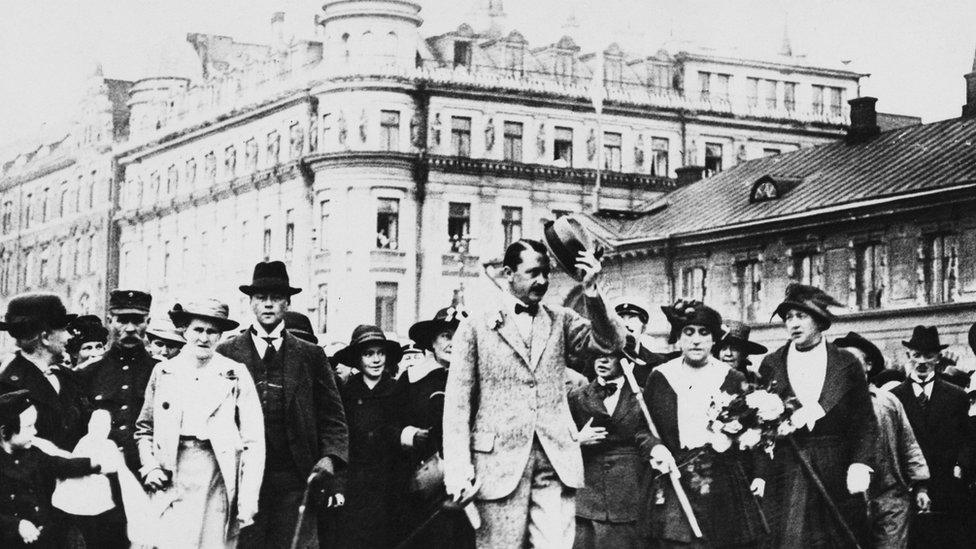
The national hero, soldier and statesman Gustaf Mannerheim is seen as the father of modern Finland
1323 - Territory of present-day Finland becomes part of the Swedish realm
A chronology of key events:
1100s - Swedish crusades subjugate Finns and convert them to Christianity.
1808 - Russian invasion of Sweden supported by Napoleon.
1809 - Finland is ceded to Russia by the Swedes. The Finns retain a considerable amount of autonomy. They keep their own legal system, religion, and are exempt from Russian military service.
1899 onwards - Russian Tsar Nicholas II inaugurates policy of Russification of Finland, including conscripting men into the Russian army and imposing Russian as the official language. Protests and a campaign of civil disobedience begin.
1906 - Finland passes the Parliament Act, which establishes universal suffrage, including the right for women to stand for elected office, for the first time in Europe.
Living with the Soviet Union
1917 - The Russian Revolution allows Finland to declare its independence.
1918 - Bitter civil war, which leads to some 30,000 deaths. A rebellion by left-wing Red Guards is put down by General Carl Gustaf Emil Mannerheim.
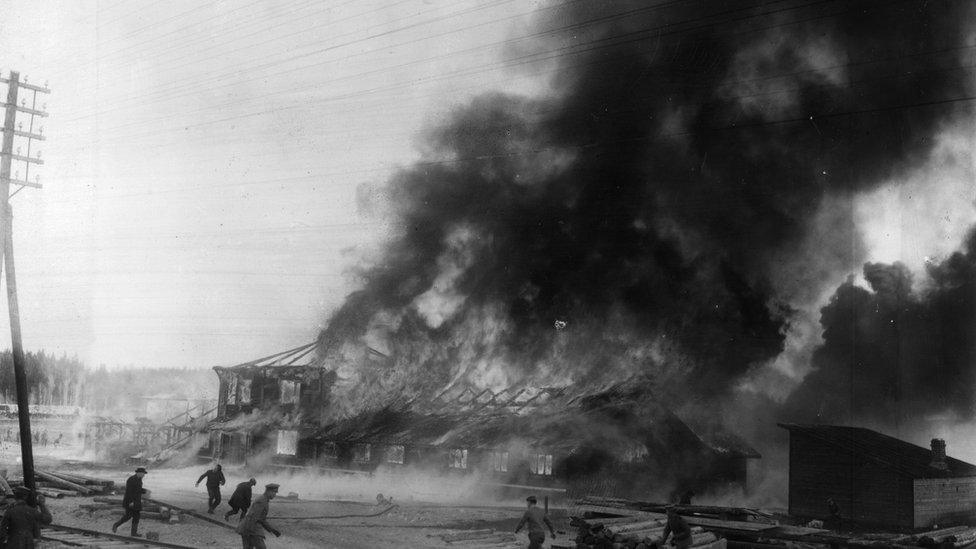
The civil war of 1918 started when the revolutionary Reds tried to seize control
1919 - Finland becomes a republic. Kaarlo Stahlberg becomes first president.
1939 - Outbreak of World War Two. Finland declares its neutrality. In November the Soviet Union invades in the Winter War.
1940 - Despite fierce resistance, the Finns are forced to concede. The Treaty of Moscow gives around 10% of Finnish territory to the Soviet Union.
1941 - Germany attacks USSR in June. Finland launches military campaign to retake territory.
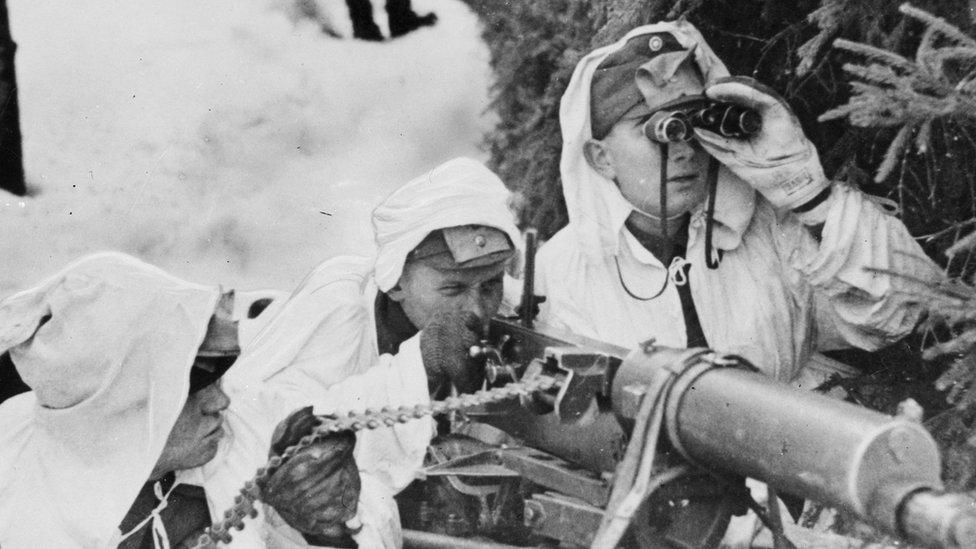
Finland lost ground to the Soviet Union despite fierce resistance
1944 - The Soviet Army invades. An armistice is signed in September. Finland concedes more land to the Soviet Union and agrees to pay war reparations.
1950 - Urho Kekkonen becomes prime minister and is subsequently elected as president in 1956. He pursues a policy of friendly neutrality with the Soviet Union.
1955 - Finland joins United Nations and Nordic Council.
1973 - Trade agreements signed with the European Economic Community and Comecon.
Leaning towards Europe
1990 - Economic difficulties as former Soviet and eastern European markets collapse.
1995 - Finland becomes member of the European Union.
1999 - Paavo Lipponen's social democrats are returned to power.
Social Democrat Kalevi Sorsa was prime minister four times between 1972-87
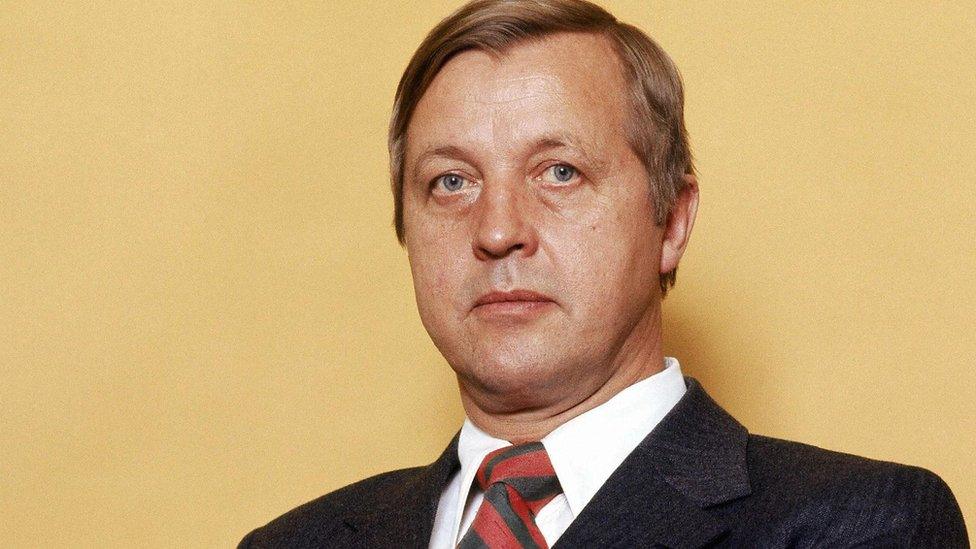
Social Democrat Kalevi Sorsa was prime minister three times and did much to strengthen the welfare state
2000 February - Tarja Halonen elected as Finland's first female president.
2002 January - Euro replaces the Finnish mark.
2002 May - Parliament narrowly approves construction of a fifth nuclear reactor, the first in Western Europe since 1991 and the first in the country for 30 years. Green Party decides to withdraw from government coalition in protest.
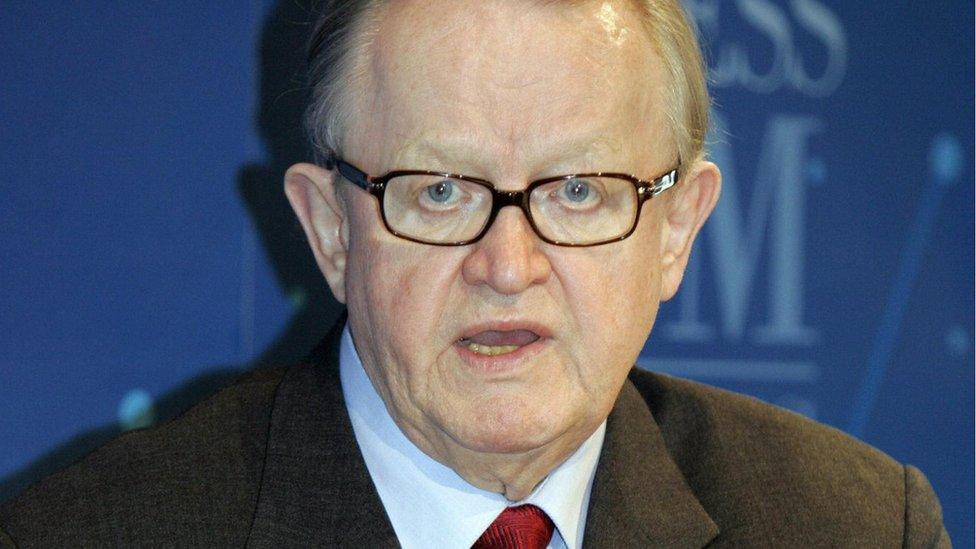
Former Finnish President Martti Ahtisaari won the Nobel Peace Prize in 2008 for his international conflict mediation efforts
2008 June - Parliament approves EU's Lisbon Treaty.
2008 September - A 22-year-old gunman kills 11 people - including himself - in a shooting spree at a vocational college, prompting the government to impose stricter rules for handgun ownership.
2008 December - Former Finnish President Martti Ahtisaari receives 2008 Nobel Peace Prize.
2009 May - May start-up date for OL3 nuclear reactor postponed until 2012. The project is also about $2.4bn (1.7bn euros) over budget.
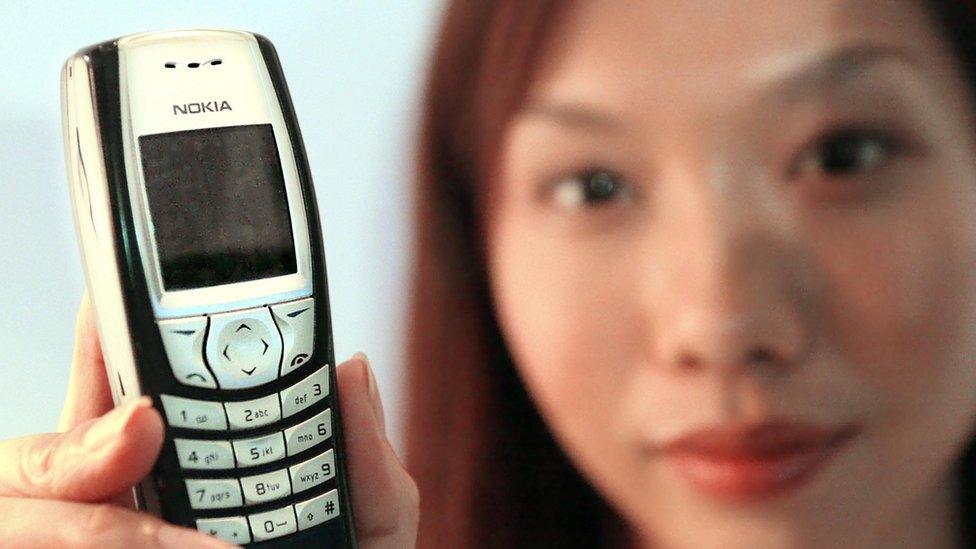
Once a world-wide technology giant, Finnish phone-maker Nokia was hit by the rise of the iPhone
2010 July - Finland becomes world's first country to give its citizens a legal right to broadband internet.
2014 December - Parliament approves plans by a Finnish-Russian consortium to build a nuclear power station, prompting the Greens to leave the government of Prime Minister Alexander Stubb.
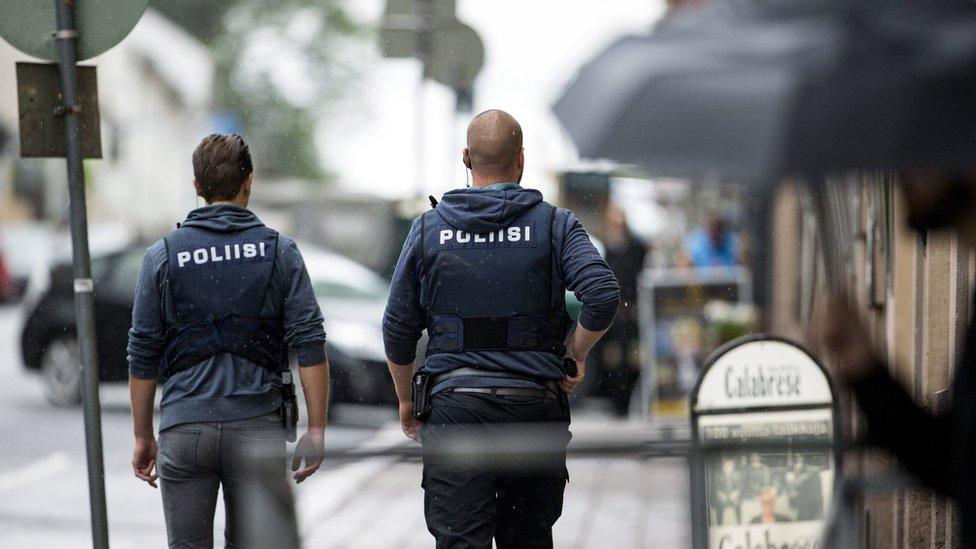
Finland suffered what appeared to be its first terror attack in 2017 when several people were stabbed in the city of Turku
2016 October - Finland signs an agreement on closer defence collaboration with the United States amid growing concern over Russian military activities in the Baltic Sea region.
2016 December - Finland emerges from a downturn lasting nearly a decade, according to central bank growth forecasts.
2017 August - Finland suffers what police treat as its first terrorist attack when a young Moroccan man stabs several people in the southwestern city of Turku.
2019 August - The Social Democrats return to power at the head of a centre-left coalition led by Antti Rinne.
2019 December - Antti Rinne resigns over handling of postal strike, and is succeeded by fellow Social Democrat Sanna Marin.
2022 - In response to Russia's invasion of Ukraine, Finland and Sweden apply for Nato membership.